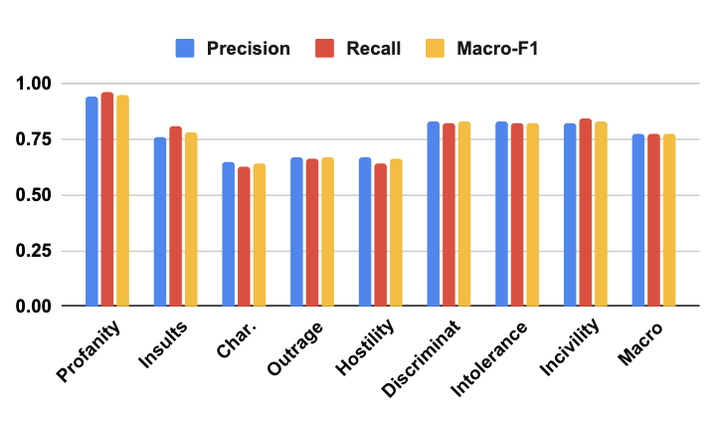It's Not Just Hate: A Multi-Dimensional Perspective on Detecting Harmful Speech Online
 Performance per category
Performance per category
Abstract
Well-annotated data is a prerequisite for good Natural Language Processing models. Too often, though, annotation decisions are governed by optimizing time or annotator agreement. We make a case for nuanced efforts in an interdisciplinary setting for annotating offensive online speech. Detecting offensive content is rapidly becoming one of the most important real-world NLP tasks. However, most datasets use a single binary label, e.g., for hate or incivility, even though each concept is multi-faceted. This modeling choice severely limits nuanced insights, but also performance.We show that a more fine-grained multi-label approach to predicting incivility and hateful or intolerant content addresses both conceptual and performance issues.We release a novel dataset of over 40,000 tweets about immigration from the US and UK, annotated with six labels for different aspects of incivility and intolerance.Our dataset not only allows for a more nuanced understanding of harmful speech online, models trained on it also outperform or match performance on benchmark datasets